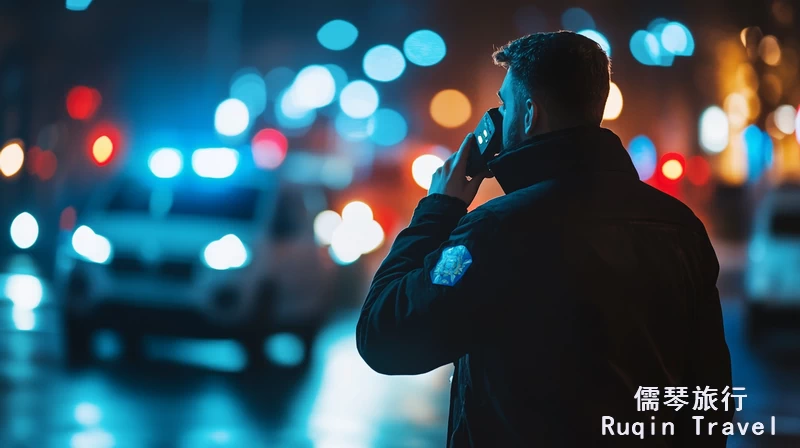China is a vibrant and diverse country, offering a unique experience to travelers. However, like any other destination, emergencies can arise. It’s crucial for foreign tourists to be aware of the essential and emergency contact numbers in China.
This guide provides a comprehensive list of these useful and emergency numbers in China, along with tips on how to handle various situations. Whether you need medical assistance, police intervention, or just general help, knowing these numbers can be a lifesaver.
1. Key Emergency Numbers in China
When you’re in China, knowing the key emergency numbers is vital. The three most important numbers are:
- Police (公安) – 110: This number is for all police-related emergencies, such as reporting a crime or needing police assistance. It’s available 24/7, and operators can often speak basic English.
- Ambulance (急救) – 120: Dial this number for medical emergencies requiring an ambulance. It’s essential to clearly state your location and the nature of the emergency.
- Fire Department (消防) – 119: This is the number to call in case of a fire. Quick response is critical, so ensure you provide clear details about your location.
These numbers are straightforward and easy to remember. However, it’s also useful to know additional numbers and services, especially for non-emergency situations.
2. Additional Useful Numbers
Aside from the main emergency contacts, there are other numbers that can be very useful during your stay in China. These include:
- Traffic Accidents (交通事故) – 122: If you’re involved in or witness a traffic accident, this number connects you to traffic police.
- Tourist Assistance (旅游服务) – 12301: This is a national tourist hotline offering information and assistance to travelers. They can provide guidance in English and other languages.
- Consumer Complaints (消费者投诉) – 12315: For issues related to consumer rights, such as disputes with sellers or service providers, this number connects you with the appropriate authorities.
- Weather Information (天气信息) – 12121: For real-time weather updates and forecasts, this hotline can be very handy, especially if you’re planning outdoor activities.
These numbers provide access to essential services that can assist in various situations. However, it’s also important to know how to use these services effectively.
3. What to Do in an Emergency in China
Emergencies can be stressful, especially in a foreign country. However, staying calm and knowing what steps to take can make a significant difference. First, dial the appropriate emergency number. Secondly, clearly state the nature of the emergency and your exact location. Next, follow any instructions given by the operator. Additionally, it’s advisable to have your address written in Chinese, as this can aid communication if there’s a language barrier.
In case of a medical emergency, it’s crucial to know the nearest hospitals that cater to foreigners. Many major cities have international hospitals with English-speaking staff. Furthermore, keep a list of these hospitals and their contact numbers handy. For instance, in Beijing, you can contact Beijing United Family Hospital. In Shanghai, there’s the Shanghai East International Medical Center.
4. How to Contact the Police in China
If you encounter a situation where police assistance is required, calling 110 is the most straightforward action. The police in China are generally helpful and will respond promptly to emergencies. However, it’s essential to remain calm and respectful. When calling, briefly explain the issue and your location. If language is a barrier, request an English-speaking officer.
In situations where you’re unable to reach the police via phone, you can visit the nearest police station. Police stations are usually well-marked, and hotel staff can assist in locating the nearest one. Additionally, it’s advisable to carry identification at all times, as you may need to present it during police interactions.
5. Medical Emergency Numbers in China
Medical emergencies require immediate attention. Dial 120 to call an ambulance. However, be aware that public ambulances may not always have English-speaking staff. Therefore, if you’re staying in a major city, consider using a private ambulance service associated with an international hospital.
Moreover, it’s useful to know the location and contact information of nearby hospitals. For minor issues, many hotels have on-call doctors. For more serious conditions, it’s best to go to a hospital with international standards. In major cities like Beijing and Shanghai, these hospitals are well-equipped to handle various medical emergencies.
6. China Travel Safety Tips
Traveling in China is generally safe, but it’s essential to take certain precautions. Firstly, always have a copy of your passport and visa. Keep these in a secure place, separate from the originals. Secondly, be cautious of your belongings, especially in crowded places. Pickpocketing can occur in busy areas like markets and tourist attractions.
Next, familiarize yourself with local customs and laws. Certain behaviors may be acceptable in your home country but considered offensive in China. For instance, avoid discussing sensitive topics in public. Additionally, always have a basic understanding of the local language. Learning a few key phrases can go a long way in ensuring smooth communication.
7. Emergency Helpline for Foreigners in China
China has specific services to assist foreigners in emergencies. The Foreign Affairs Office in major cities provides assistance in cases involving foreign nationals. They can help with legal issues, lost passports, and other emergencies.
Another valuable resource is your country’s embassy or consulate. They can provide various services, including passport replacement, legal advice, and emergency travel documents. It’s advisable to have the contact details of your embassy or consulate, including after-hours emergency numbers.
8. Important Contacts for Travelers in China
In addition to emergency numbers, having a list of important contacts can be incredibly useful. Foreign embassies and consulates are crucial points of contact. They can offer assistance in legal matters, lost documents, and emergency situations. Additionally, having the contact information of your hotel and any local contacts can be beneficial.
For general travel information, the 12301 Tourist Hotline is invaluable. They offer assistance in multiple languages and can help with travel-related queries. Furthermore, many cities have 24-hour support numbers that provide information on transportation, accommodation, and tourist attractions.
9. How to Dial Emergency Services in China
Understanding how to dial emergency services in China is crucial. All emergency numbers can be dialed from landlines, mobile phones, and public payphones. To dial from a mobile phone, simply enter the emergency number. There’s no need to dial a country or area code. For international travelers, ensure your mobile phone is compatible with local networks.
In situations where you don’t have access to a phone, seek assistance from locals. Most people in China are helpful and willing to assist in emergencies. Additionally, hotels often have direct lines to emergency services, so don’t hesitate to ask for help.
10. China 24/7 Support Numbers
China offers various 24/7 support numbers to assist tourists. The 12301 Tourist Hotline is available around the clock for travel-related inquiries. They provide information on tourist attractions, transportation, and accommodation.
For legal issues, the Foreign Affairs Office in major cities can offer guidance and support. They are particularly helpful in situations involving legal disputes or lost documents. Additionally, some international hospitals have 24-hour hotlines for medical emergencies.
In conclusion, knowing the useful and emergency numbers in China is crucial for a safe and enjoyable trip. Whether you’re dealing with a medical emergency, reporting a crime, or seeking general assistance, these numbers can provide the help you need. Always stay informed and prepared, and keep this guide handy during your travels. This way, you can focus on enjoying the rich culture and stunning landscapes that China has to offer.
By understanding the emergency services and resources available and knowing the useful and emergency numbers in China, you can navigate any situation with confidence. Remember, being well-prepared is the key to a smooth and enjoyable travel experience in China. Whether it’s knowing how to contact the police, call an ambulance, or seek tourist assistance, this guide has you covered. Safe travels! Follow China Survival Guide for more tips.
More China Survival Guide
Prepare for smooth travels with the China Survival Guide, your go-to resource for practical advice on navigating daily life in China. From essential language tips and transportation know-how to safety guidelines and local etiquette.



